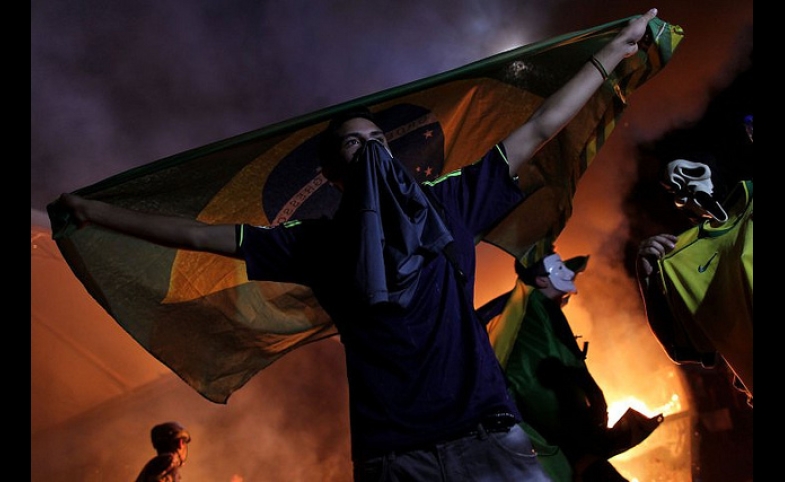As the World Cup drew to a dramatic close on July 12, CPD reached out to a few public diplomacy experts and asked whether they thought Brazil’s hosting of the tournament had been worth it, in terms of its global image and...
KEEP READINGThe CPD Blog is intended to stimulate dialog among scholars and practitioners from around the world in the public diplomacy sphere. The opinions represented here are the authors' own and do not necessarily reflect CPD's views. For blogger guidelines, click here.

Brazil’s Post-World Cup Legacy: Ignore FIFA
It is perhaps cliché to say that Brazil is at a crossroads.
Despite the overused adage, the South American country of 200 million will be at the center of the known universe for the next 30 days. Brazil’s hosting of the 2014 FIFA World Cup was perceived as an economic, political and soft power coup for the country when it was announced as the host in late 2007. But it has become mired in labor disputes, not-yet-completed infrastructure, laughable gaffes, deadly accidents and massive social unrest.
At last year’s tune-up tournament, the 2013 FIFA Confederations Cup, international broadcasters like ESPN and Univision juxtaposed images of inside the stadium and its pristine pitch and joga bonito of the revitalized Brazilian Men’s National Team (which would win the tournament over World Cup champion Spain) with images from just outside, where middle-class Paulistas protested and battled police and Brazilian troops over issues like the rise in public transportation costs (the Free Fare Movement), anger over immense spending by the Brazilian government to pay for the World Cup in 2014 and Olympics in 2016, and other issues including police brutality and lack of employment.
Several months ago, police in São Paulo stormed a hotel where protesters had gathered, shooting rubber bullets and wearing full riot gear. Since then police action against protesters has continued in force across Brazil. A protest movement associated with Anonymous Rio, “Operation Stop The World Cup,” has been particularly active.
During a recent research trip to São Paulo, I met with several officials from the State and City of São Paulo as well as Brazil’s national tourism and investment agency, EMBRATUR. All three agencies touted the ‘openness’ of Brazil’s messaging and public diplomacy strategy for the World Cup, noting that they would, similar to South Africa’s strategy in 2010, allow for a full-spectrum image of Brazil to emerge. Officials from the State and City of São Paulo beamed when they talked about their post-World Cup ‘legacy projects’ and the freedom journalists would have to cover every aspect of the tournament – including highlighting the poverty disparity, pollution, protests and overspending.
FIFA and its cadre of global sponsors, of course, would very much like for the lasting legacy of Brazil’s World Cup to be very different. The question is whether Brazil allows FIFA to control its messaging and outreach in order to maximize profits, or allows for a real and serious dialogue about the state of Brazilian society to take place.
What the officials from the State and City of São Paulo should remember is that the lasting legacy of the 2014 FIFA World Cup will not be the grand infrastructure or (questionable) economic boom promised by their FIFA overlords. It won’t be the profit-raising product tie-ins between FIFA, Coca-Cola, and mega-star Cristiano Ronaldo.
It will be, and should be, about the massive obstacles that the Brazilian people have overcome in recent decades and the massive obstacles that still remain.
Visit CPD's Online Library
Explore CPD's vast online database featuring the latest books, articles, speeches and information on international organizations dedicated to public diplomacy.
POPULAR ARTICLES
-
January 29
-
January 20
-
January 28
-
February 6
-
January 8
Join the Conversation
Interested in contributing to the CPD Blog? We welcome your posts. Read our guidelines and find out how you can submit blogs and photo essays >.












